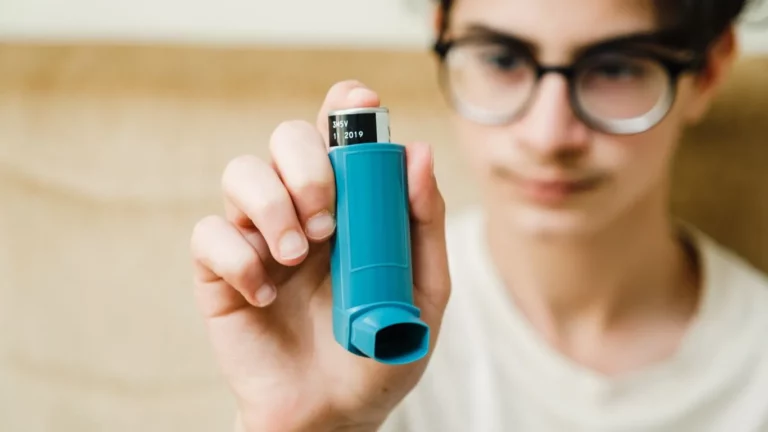Overcoming GERD and Weight Loss Struggles: Powerful Tips
If you’ve ever tried shedding a few pounds while battling GERD and weight loss struggles, then you already know—this combo can be brutal. I see it all the time at the gastroenterology clinic where I work. Patients walk in with heartburn, bloat, and frustration in equal amounts, wondering why their stomach won’t stop rebelling while they’re trying to do something good for their body. And honestly, I get it—I’ve seen firsthand how complicated this gets. The journey to a healthier you gets even bumpier when your digestive system has its own plans.
Why GERD and Weight Loss Often Clash

Let’s be real—losing weight is hard enough already. Add GERD (that’s gastroesophageal reflux disease, in case you’re new to the term) into the mix, and it can feel like every bite you take is a gamble. GERD triggers flare-ups that make it uncomfortable to eat, especially when you’re trying to stick to a healthy diet. Foods that help with weight loss—like citrus, tomatoes, spicy dishes, or even a simple cup of black coffee—are often the exact things that spark that all-too-familiar burning in your chest.
From my time working side-by-side with GI specialists, I’ve noticed patients often feel stuck. They’re told to eat smaller portions, skip late-night meals, and avoid their favorite snacks—all while somehow maintaining a calorie deficit. Yeah… easier said than done.
How GERD Impacts Eating Habits
GERD doesn’t just mess with your esophagus; it completely reshapes how you eat. If you’ve been dealing with reflux long enough, you’ve probably had days where you skip meals to avoid discomfort. But here’s the kicker—skipping meals can make GERD worse. Your stomach produces acid whether you’re eating or not, and an empty stomach can actually increase irritation.
And let’s not forget the mental aspect. Constant discomfort after eating can lead to food fear or even disordered eating patterns. It’s not just physical—it’s emotional too. I’ve sat with patients who’ve cried during consultations because they feel like they’re fighting a losing battle. Believe me, your feelings are valid.
Common Mistakes People Make When Managing GERD and Weight Loss

If I had a dollar for every time someone came in thinking all they needed was a stronger antacid, I’d probably have a massage chair in my break room. The truth is, meds can help, but they’re not the whole answer. These are a few things I often see folks get wrong when trying to manage both GERD and weight loss:
- Over-restricting calories: Going too low can slow digestion and increase acid buildup.
- Eating large meals: Big portions stretch the stomach, making reflux worse—even if the food is “healthy.”
- Lying down too soon after eating: This one’s huge. Gravity matters more than you think.
- Assuming “healthy” foods are always GERD-friendly: Avocados, raw onions, and garlic? All good for your heart, but rough on reflux.
Small tweaks make a big difference. I remember chatting with a patient who loved drinking green smoothies to lose weight. Problem was, she’d pack them with citrus, spinach, and protein powder. That combo wrecked her mornings. Once we swapped in low-acid fruits and cut back on portion size, the difference was night and day.
What Actually Helps: Sustainable Changes That Don’t Set Off GERD

Okay, so what does work? I always tell people—it’s not about chasing trends, it’s about working with your body. These small, realistic changes can help you lose weight *without* triggering GERD symptoms:
- Break meals into 4–6 smaller portions to keep acid levels stable and reduce pressure on your esophageal sphincter.
- Stick to low-acid foods like bananas, oatmeal, sweet potatoes, and lean poultry.
- Drink fluids between meals, not during, to prevent stomach overfilling.
- Stay upright for at least 30 minutes after meals—propping up with a pillow doesn’t count!
- Keep a food journal to identify your personal triggers (it’s different for everyone).
In my own clinic experience, I’ve seen people make these small shifts and finally feel like they’re gaining ground. It’s never about perfection—it’s about progress. And trust me, once you feel the difference, it’s totally worth it.
Personalized Nutrition: What Worked for My GERD Patients

One thing I’ve learned over the years working in gastroenterology is this: when it comes to GERD and weight loss struggles, there’s no one-size-fits-all. Sure, some foods are classic culprits, but everyone’s body reacts a little differently. That’s why a cookie-cutter diet plan usually falls flat. What worked wonders for one patient gave another relentless heartburn. So, it’s all about personalization—and a little trial and error.
I had a patient, let’s call her Linda, who came in totally discouraged. She had cut out fried foods, switched to grilled chicken, and even swapped white bread for quinoa—but still had reflux every night. Turns out, her trigger was actually garlic. Once we eliminated that (which was tough for her, because she loved Italian food), she finally started seeing results—not just in her symptoms, but on the scale too.
How to Find Your Food Triggers Without Losing Your Mind
It’s honestly like detective work. Here’s how I guide patients through it:
- Start a detailed food log. Not just what you eat, but when you eat and how you feel afterward.
- Look for patterns, especially within 1–2 hours of meals. Reflux isn’t always immediate, but it’s usually pretty close.
- Trial-and-error method: Eliminate suspect foods for 1-2 weeks, then reintroduce one at a time every few days.
- Be patient, because yeah—it can be a bit of a process, but it’s worth it once you crack your own personal GERD code.
Honestly, I always tell patients: if you’re only eating kale and grilled chicken but you’re miserable, it’s not a sustainable plan. You need something that fits your lifestyle, your flavor preferences, and your GI system’s mood swings.
Physical Activity: Friend or Foe?

This might surprise you, but not all exercise is great when you have GERD. I’ve seen people hit the gym hard thinking they’re doing all the right things, only to end up doubled over with acid reflux halfway through a workout.
Here’s the deal: intense core workouts, heavy lifting, or even certain yoga poses (like downward dog) can make GERD symptoms worse. All that pressure on your abdomen can push stomach acid up into the esophagus—ouch. I’ve seen this happen with super fit folks, and they’re always baffled at first.
GERD-Friendly Workouts That Actually Help
So what should you be doing instead? Try these more gentle, reflux-safe options that still torch calories:
- Brisk walking (bonus: it’s free and you can do it literally anywhere)
- Light cycling or stationary bike riding
- Low-impact aerobics or water aerobics
- Pilates, with modifications to avoid deep core pressure
- Strength training with good posture and no straining—avoid holding your breath!
I always recommend patients wait at least an hour (preferably two) after eating before exercising. It helps prevent reflux during activity, and trust me, your body will thank you.
Emotional Health and the GERD-Weight Connection

One aspect of this journey that often gets ignored is emotional health. And honestly, it shouldn’t. Living with chronic GERD and trying to lose weight at the same time can wear you down. It’s exhausting—not just physically, but emotionally too. The stress, frustration, and constant thinking about food and symptoms can take a toll.
Here’s something real: I had a patient who did everything “right” but still struggled. It wasn’t until we addressed her stress levels—through journaling, therapy, and light meditation—that her symptoms finally started easing up. Stress causes your body to produce more acid. It can also slow digestion and increase tension in your abdomen. Basically, it makes everything worse.
Simple Ways to Reduce Stress and Help Your Gut
You don’t need to go full Zen monk to get results. These small shifts can help regulate both your gut and your mood:
- Practice deep breathing before meals—slows down your nervous system and aids digestion.
- Set screen-free time during meals so you’re more in tune with hunger and fullness cues.
- Write it out. A quick brain dump at the end of the day can help you process emotions and stop the stress spiral.
- Get enough sleep. I know, easier said than done. But poor sleep = poor digestion = angry reflux.
As a Medical Assistant, I’ve seen firsthand how powerful these “non-food” habits can be. When someone takes care of their mental health, their gut health often follows.
Building a Sustainable Routine That Supports GERD and Weight Loss

By the time people get to this stage, they’ve usually tried all the “quick fixes”—fad diets, miracle supplements, late-night Google deep-dives—you name it. But the truth is, when it comes to managing GERD and weight loss struggles, consistency is your secret weapon. And I mean the boring, unsexy kind of consistency: eating balanced meals at regular times, getting decent sleep, and actually listening to your body.
Back in the clinic, we had a patient who would fast all day to “save” calories, then binge dinner late at night. Classic reflux trigger, right? Once she started eating breakfast (even something as simple as oatmeal and a banana), spacing her meals out, and walking after dinner, the changes were honestly impressive. She didn’t just lose weight—her GERD calmed way down too.
Easy Daily Habits That Actually Work
You don’t need to overhaul your life overnight. These small, realistic tweaks are what I’ve seen work again and again in real people’s lives:
- Stick to meal times: Eating around the same time every day helps regulate stomach acid production.
- Swap late dinners for earlier ones: Give your body at least 2–3 hours to digest before bed.
- Chew more, stress less: Seriously, chewing your food thoroughly makes a big difference.
- Drink more water—just not during meals: Sip in between instead of gulping while you eat.
- Move your body gently: A 15-minute walk after meals is gold for digestion and weight loss.
The trick isn’t doing everything perfectly—it’s finding what works for you and sticking with it enough that it becomes second nature. Repetition builds rhythm, and rhythm keeps GERD in check.
Supplements and Meds: What Helps and What to Watch Out For

I get asked this a lot—“What should I be taking?” And honestly, the answer depends on your symptoms and your doctor’s recommendations. But from my experience on the clinic floor, here’s a quick rundown:
Helpful Supplements
- Probiotics: These can help balance gut flora and support digestion, but not all brands are created equal. Ask your GI provider for a reputable one.
- Digestive enzymes: Some people find relief with enzyme blends, especially if they have trouble digesting certain foods. Again, consult before you start.
- Aloe vera juice (decolorized): Can soothe the esophagus, but only in small, controlled amounts. Watch the sugar content.
Medications to Consider
Sometimes lifestyle changes need a little backup. That’s where meds come in—but they’re not a free pass to eat trigger foods and hope for the best:
- Antacids: Fast relief, but only short-term.
- H2 blockers: Like ranitidine (though some were recalled), these reduce acid production for a few hours.
- PPIs: Proton pump inhibitors like omeprazole are stronger and work over longer periods—but they should be used under medical guidance, not as a permanent crutch.
And just a quick PSA—don’t self-medicate based on something you saw online. Always talk to your provider. What works for one GERD patient might totally backfire for another.
Empowering Yourself with the Right Resources
I always tell people: knowledge is power, but only when it’s based on real, evidence-based sources. So if you’re ready to dig deeper and advocate for your health, here are some trusted sites I refer patients to:
- American Gastroenterological Association – Research-backed info on GERD and digestive health
- National Institute of Diabetes and Digestive and Kidney Diseases (NIDDK) – Helpful breakdowns on weight, reflux, and more
- Cleveland Clinic – Practical guides and nutrition tips
Just remember: don’t let Google become your doctor. Use it to ask smarter questions, not to replace actual care.
Disclaimer
This article is based on both personal experience as a Medical Assistant and general knowledge in the field of gastroenterology. It is intended for informational purposes only and should not be considered medical advice. Always consult a licensed healthcare provider before making changes to your diet, exercise, or medication plan.

Camellia Wulansari is a dedicated Medical Assistant at a local clinic and a passionate health writer at Healthusias.com. With years of hands-on experience in patient care and a deep interest in preventive medicine, she bridges the gap between clinical knowledge and accessible health information. Camellia specializes in writing about digestive health, chronic conditions like GERD and hypertension, respiratory issues, and autoimmune diseases, aiming to empower readers with practical, easy-to-understand insights. When she’s not assisting patients or writing, you’ll find her enjoying quiet mornings with coffee and a medical journal in hand—or jamming to her favorite metal band, Lamb of God.







